Maria Sharapova ready and raring as Russian marks controversial return with victory over Roberta Vinci in Stuttgart
The Russian completed her return to tennis after a 15-month suspension with a convincing display against her Italian opponent in the first round of the Porsche Tennis Grand Prix
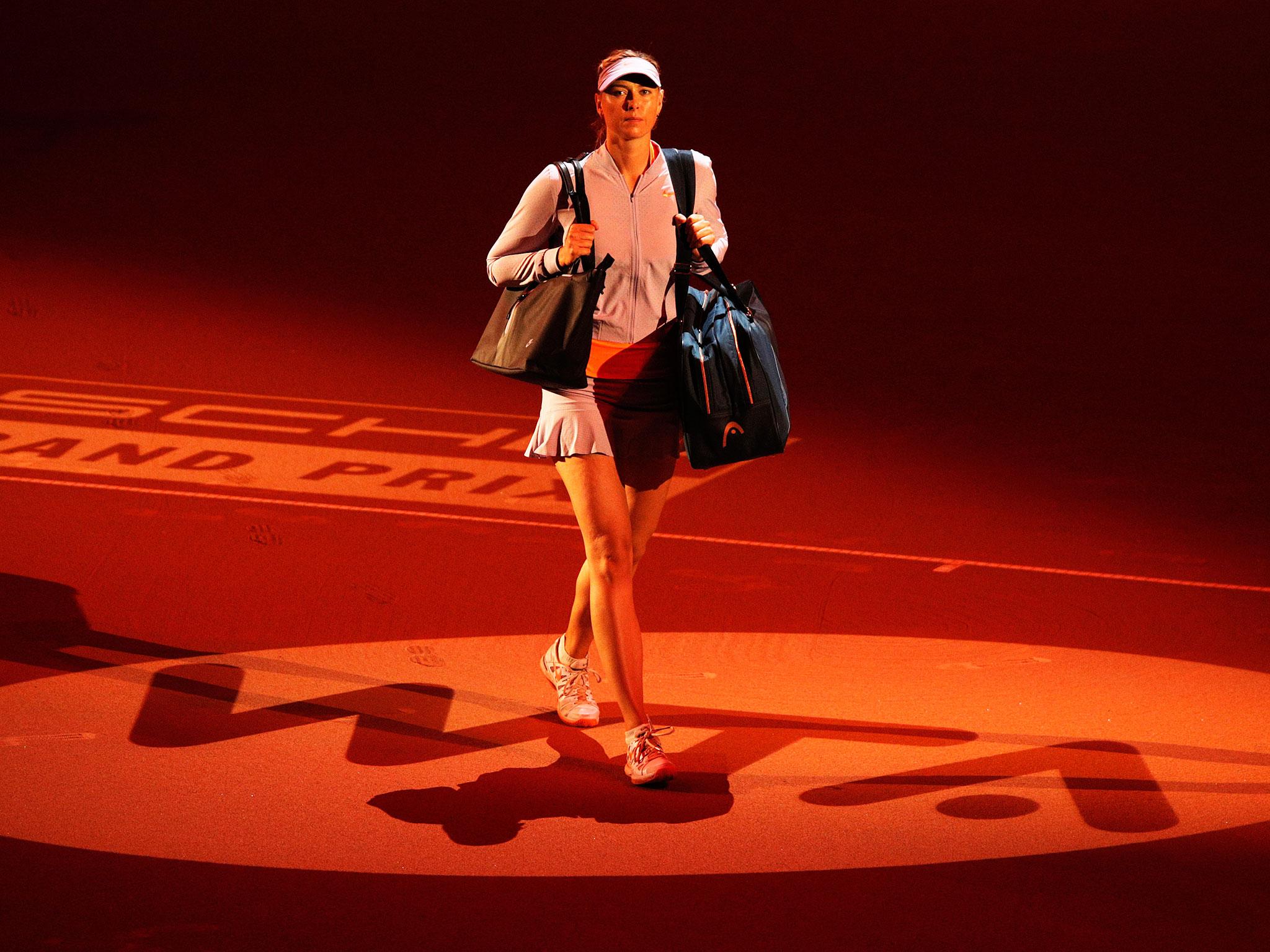
It was as if she had never been away. Maria Sharapova shrieked and grunted, stayed focused on every point, hit the ball as if she had a personal grudge against it and greeted important winners with clenched fists and screams of “Come on!”
It was perhaps no surprise that the Russian completed her return to competition after a 15-month suspension following a failed drugs test with a convincing display here at the Porsche Tennis Grand Prix. Her 7-5, 6-3 victory over Italy’s Roberta Vinci secured a second-round meeting on Thursday with her fellow Russian, Ekaterina Makarova, who has lost all six of their previous encounters.
In her press conference afterwards Sharapova gave an equally impressive performance. Much of the controversy over her return has been about the wild cards which she has been given to compete here and in Madrid and Rome next month. Asked what she would say in response to those who have said that giving a wild card to a player returning from a drugs suspension sent out a wrong message to young people, she said: “That’s not my job. My job is to be a tennis player and an athlete.”
She added: “I’m being offered wild cards from the tournament directors and I’m accepting them to be able to compete in the draw. I’m coming with no ranking. I’m not getting a wild card to receive a trophy or a golden platter. I have to get through the matches and I still have to win them.”
Sharapova was asked if she agreed with the statement made by her agent, Max Eisenbud, who described Caroline Wozniacki and Agnieszka Radwanska, who had voiced misgivings about her wild cards, as “journeyman players”. She said: “I don’t control my manager’s words. I’m sure he’s been watching everyone’s comments in the last 15 months and he’s entitled to his own opinion.”
The former world No 1 insisted that she was not concerned about what other people had been saying about her. “At the end of the day what matters is on the court,” she said, adding that she liked to spend as little time as possible in the locker room. “I’ve always preferred to walk the walk – and I have. I’ve done that by winning five Grand Slams and being No 1 in the world.”
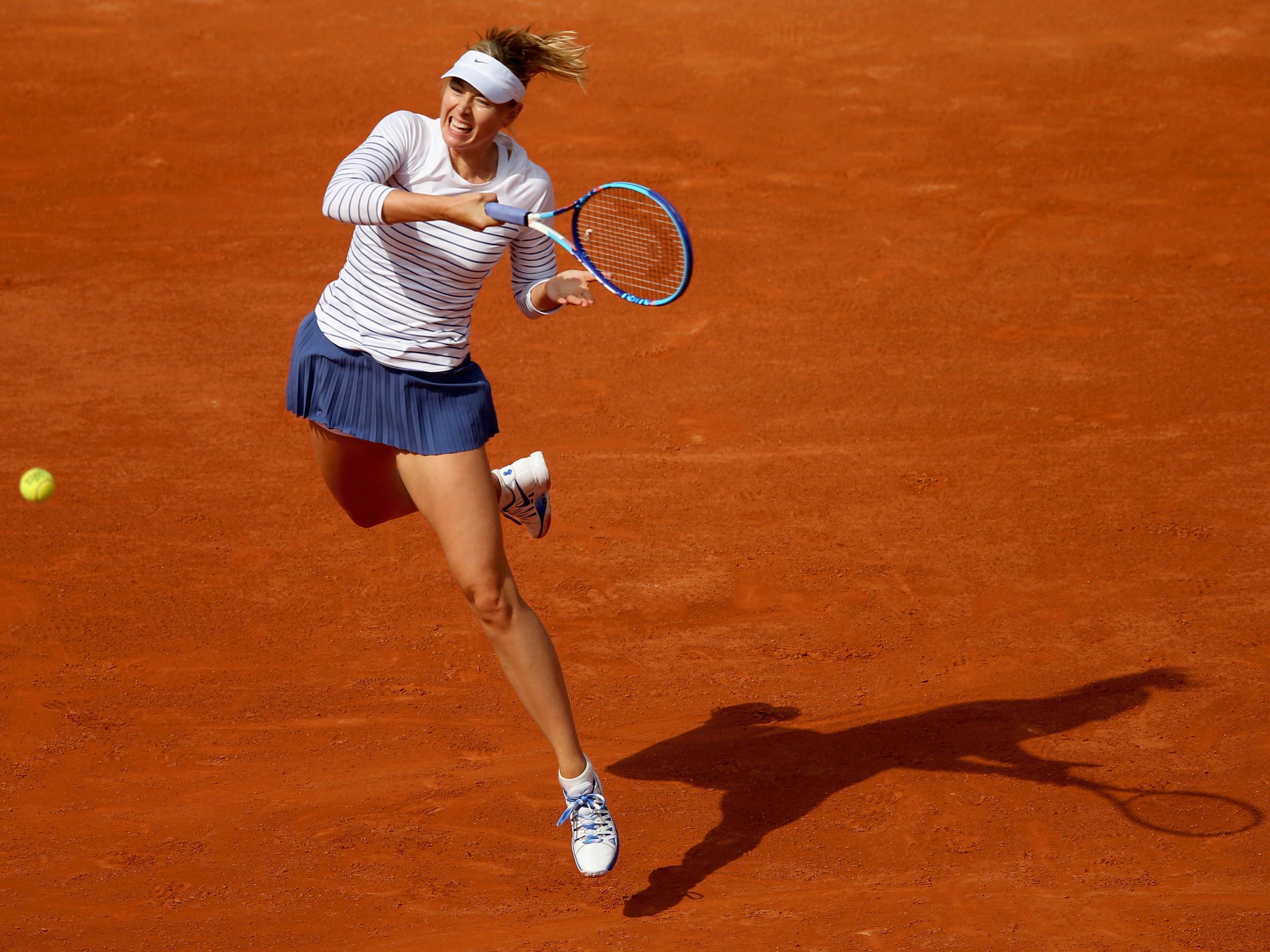
Sharapova does not have a world ranking because she has not played for the last 15 months, which meant she was not on the list of automatic French Open entries published earlier this month. However, the cut-off for the qualifying tournament at Roland Garros is next week and Sharapova would probably have enough ranking points to make the field for the qualifiers if she reaches the final here. The French tennis federation will make a decision on whether to grant her a wild card on May 16.
Asked if she would be prepared to play in the qualifying tournament for either the French Open or Wimbledon, Sharapova said: “I think I’d be prepared to play in the juniors if I had to.”
However, she said she had not given much thought to playing at Roland Garros. “Coming from someone who hasn’t competed for 15 months, the importance of this tournament and the next and the following is crucial as well,” she insisted. “I can’t get ahead of myself.”
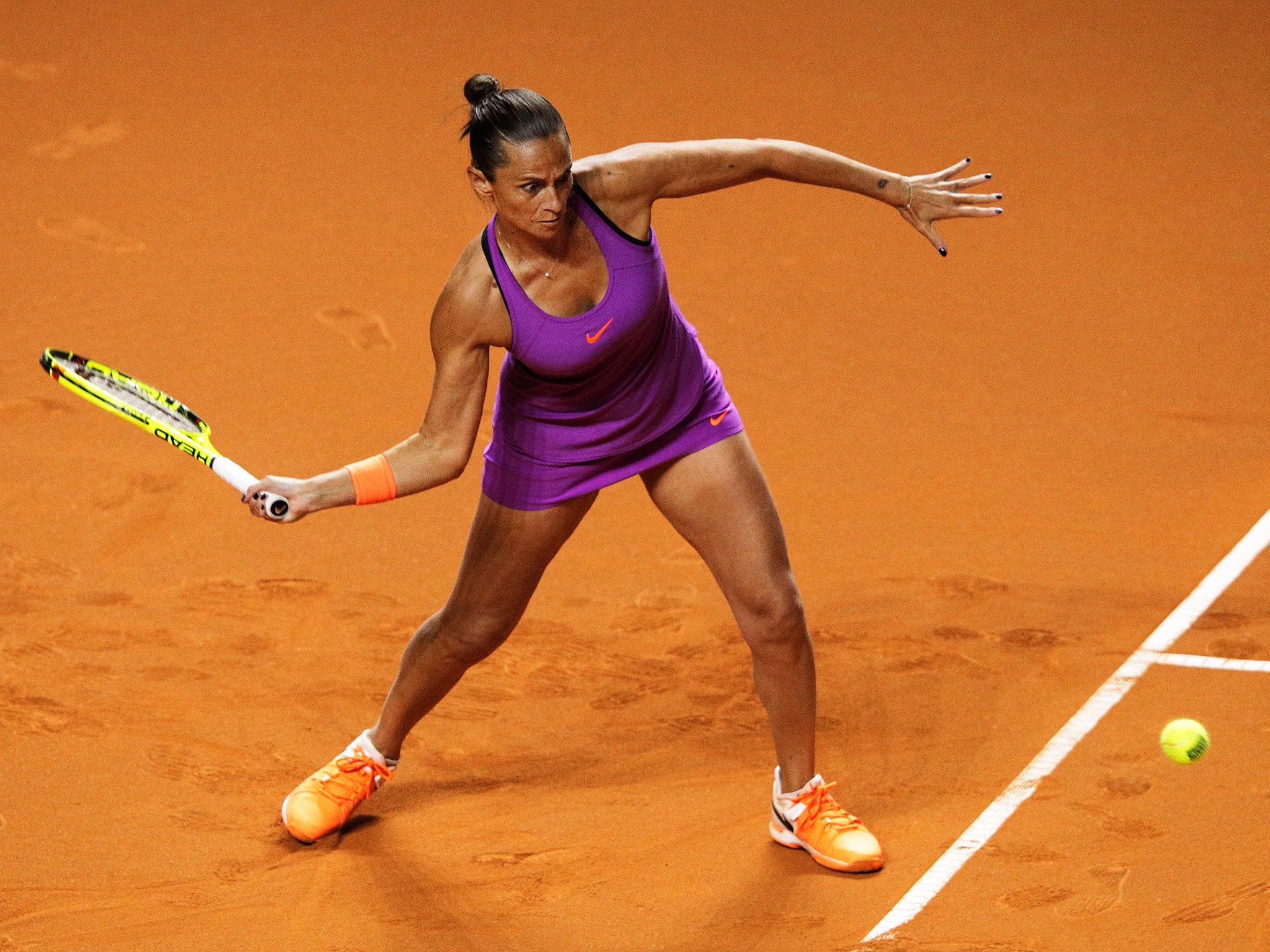
Sharapova insisted that she did not feel any anger about her 15-month ban. “I’m not an individual that’s angry or bitter,” she said. “I let things go pretty quickly and I move on to the next page.”
When she revealed last year that she had taken meldonium – which was added to the banned list at the start of 2016 – Sharapova said she had been prescribed the drug for the last 10 years to deal with a number of medical conditions. Asked if she was now taking alternative medication which was within the rules, she said: “That information is between myself, the WTA and the orthopaedic doctor that I’m working with now.”
Considering she had not played a competitive match for 15 months, Sharapova had every reason to be pleased with her win over Vinci. She served particularly well, hitting 11 aces and only three double faults, and struck some of her ground strokes with her customary power and assurance.
If there was a significant weakness it was in her movement, which may have been down to nerves. She was sometimes slow in getting into position and on occasions might have been reminded of her old description of herself, when she had said she moved on clay like “a cow on ice”. However, her sometimes clumsy movement was understandable given the occasion and the fact that this was her first match on the surface for two years.
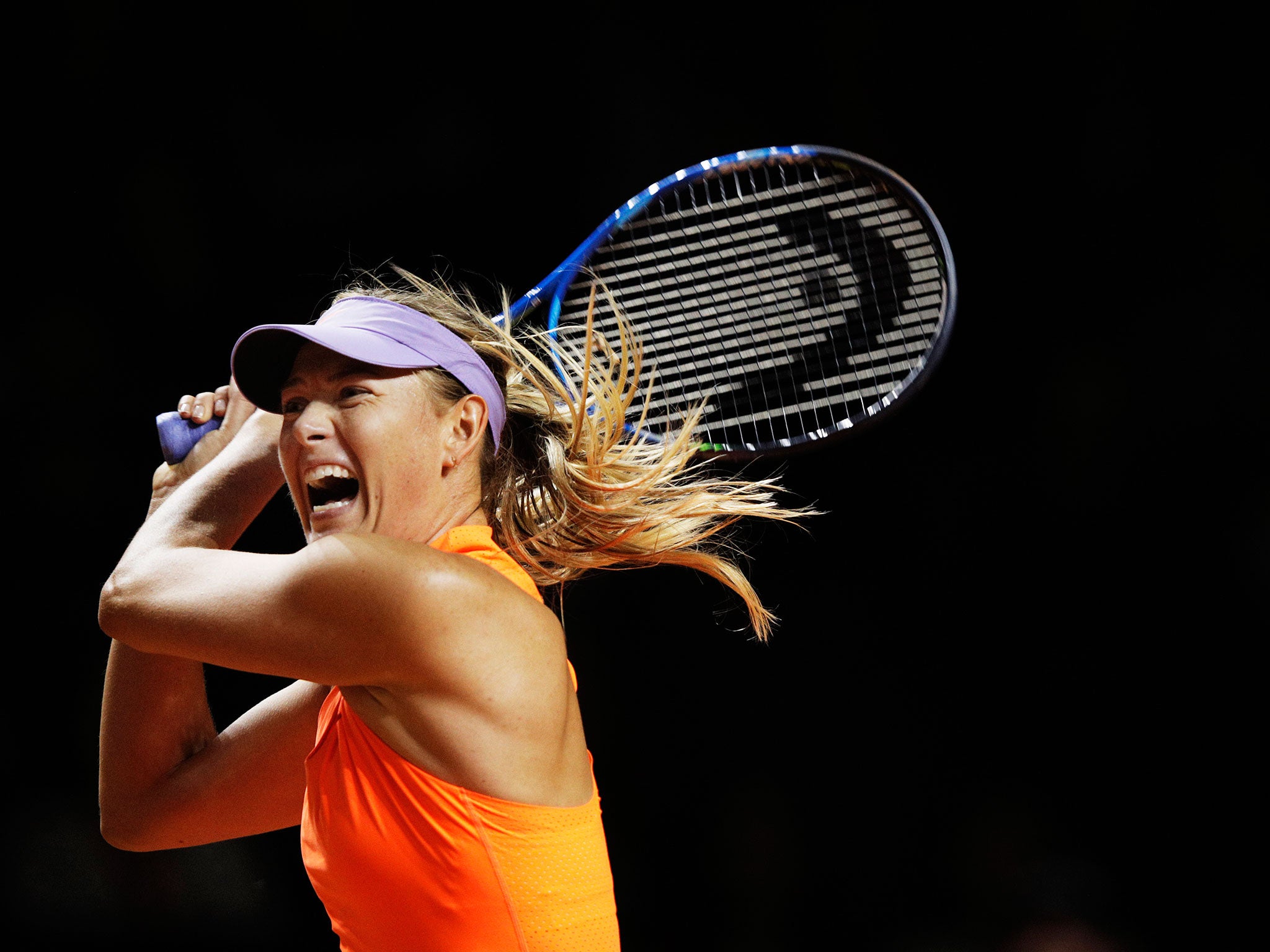
Her day had begun early. Barely nine hours after her 15-month ban ended at midnight, she had her first practice session in the Porsche Arena, having not been allowed to enter any tournament premises during her ban. She practised again later in the day before her match started at 6.30pm.
The Russian is a firm favourite here, having won the tournament on three previous occasions, and was given a warm reception by a capacity crowd. There were some supportive banners, but for the most part Sharapova drew polite and respectful applause rather than ecstatic cheers.
From the start, nevertheless, she appeared to be on edge. Three forehand errors helped Vinci to hold serve in the opening game and the Italian quickly went 2-0 up, with Sharapova double-faulting on the second point of her first service game.
However, it soon became clear that Vinci would struggle as Sharapova punished her weak second serves with some thunderous returns. Sharapova broke back immediately and soon found a good rhythm on her own serve, hitting some thumping aces.
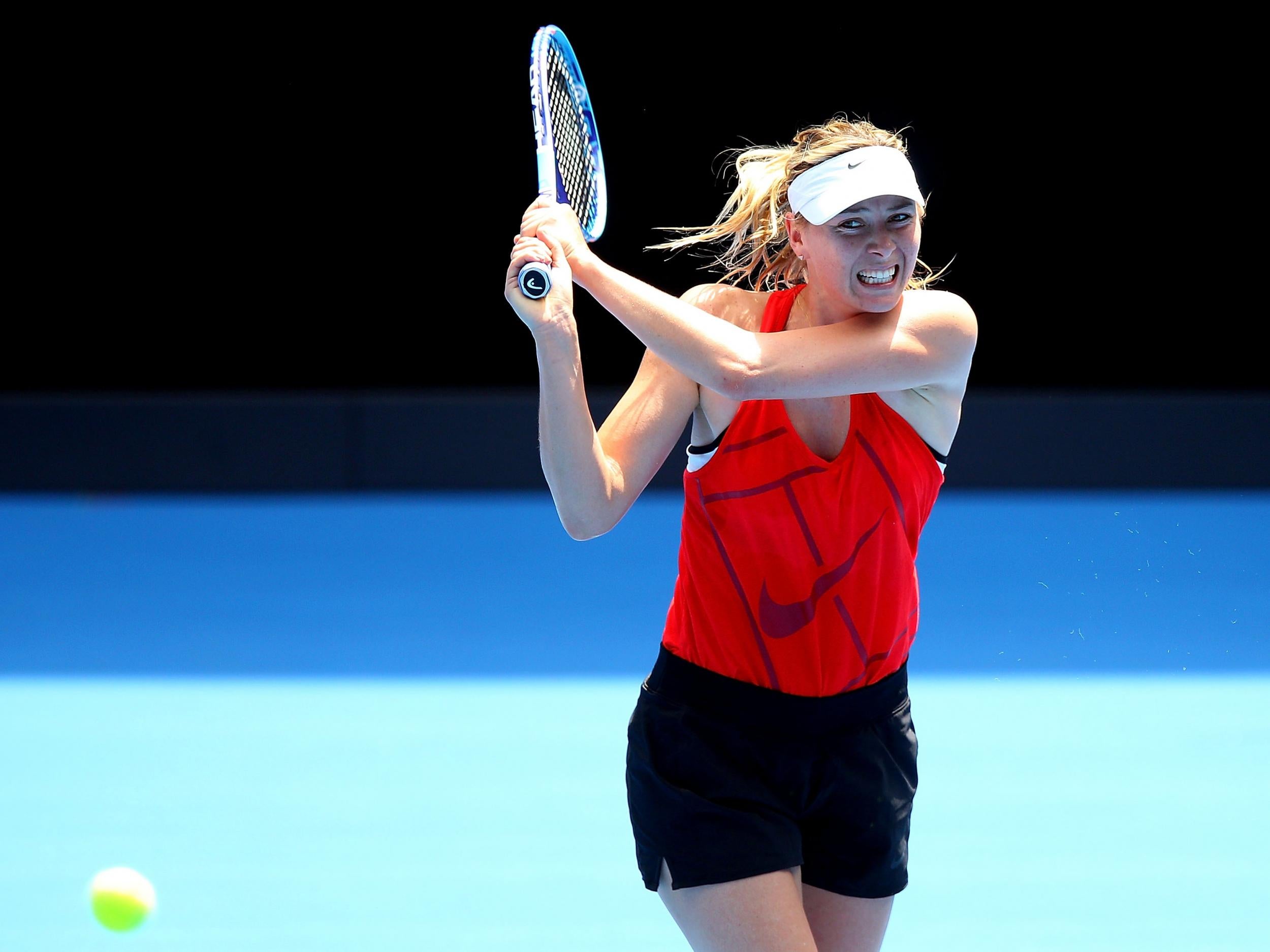
Vinci, who had failed to win more than two games in a set in both her previous meetings with Sharapova, hung on grimly until the Russian converted her eighth break point at 5-5 with a typically aggressive backhand return down the line.
Having served out for the first set, Sharapova broke immediately at the start of the second. Vinci was unable to take any of the three break points she forced in the second set and at 3-5 and 0-40 she netted a backhand. Sharapova stood on the baseline, clenched her fists and relished the moment of victory.
“I was definitely rusty,” she said later. “I made a few return unforced errors. I could name a lot of things. But overall I got through it and that’s the process that I look forward to getting through.”
Asked what she had missed most during her ban, Sharapova said: “I love being in situations where I had to figure out a way how to get through it. That’s one of the things that this sports teaches you from a young age.”
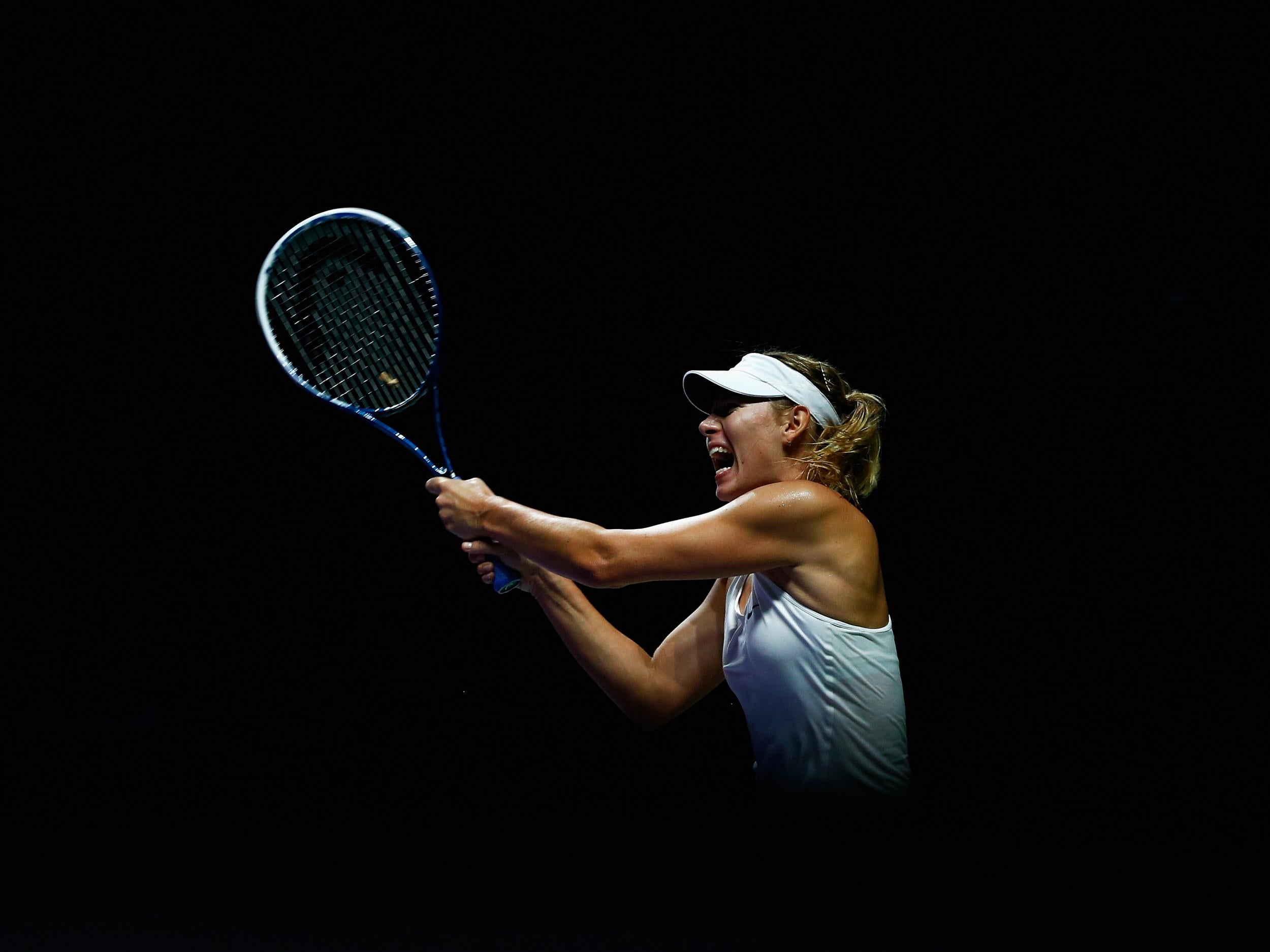
Vinci said Sharapova had been “very focused on every single point and played at a high level.” She added: “She played aggressively. She was very solid and she served well. She deserved to win.”
While Vinci said that Sharapova’s return was good for tennis, it seems that the debate over the rights and wrongs of her red carpet treatment will continue. Eugenie Bouchard, interviewed by TRT World at the tournament in Istanbul, became the latest player to voice an opinion. The Canadian said it was not right to give Sharapova wild cards, suggesting it sent the wrong message to children. Indeed Bouchard thought Sharapova should not be allowed to play the sport again.
“It’s so unfair to all of the players who do it the right way and are true,” Bouchard said of the wild card decisions. “She’s not someone I can say I look up to any more. This has definitely ruined it for me.”
Johanna Konta is also through to the second round here. The 25-year-old Briton took advantage of an abdominal injury suffered by Japan’s Naomi Osaka to win 7-6, 3-6, 6-1. On Thursday she will play Latvia’s Anastasija Sevastova, who beat Sam Stosur 6-1, 4-6, 6-3.
Join our commenting forum
Join thought-provoking conversations, follow other Independent readers and see their replies
Comments
Bookmark popover
Removed from bookmarks